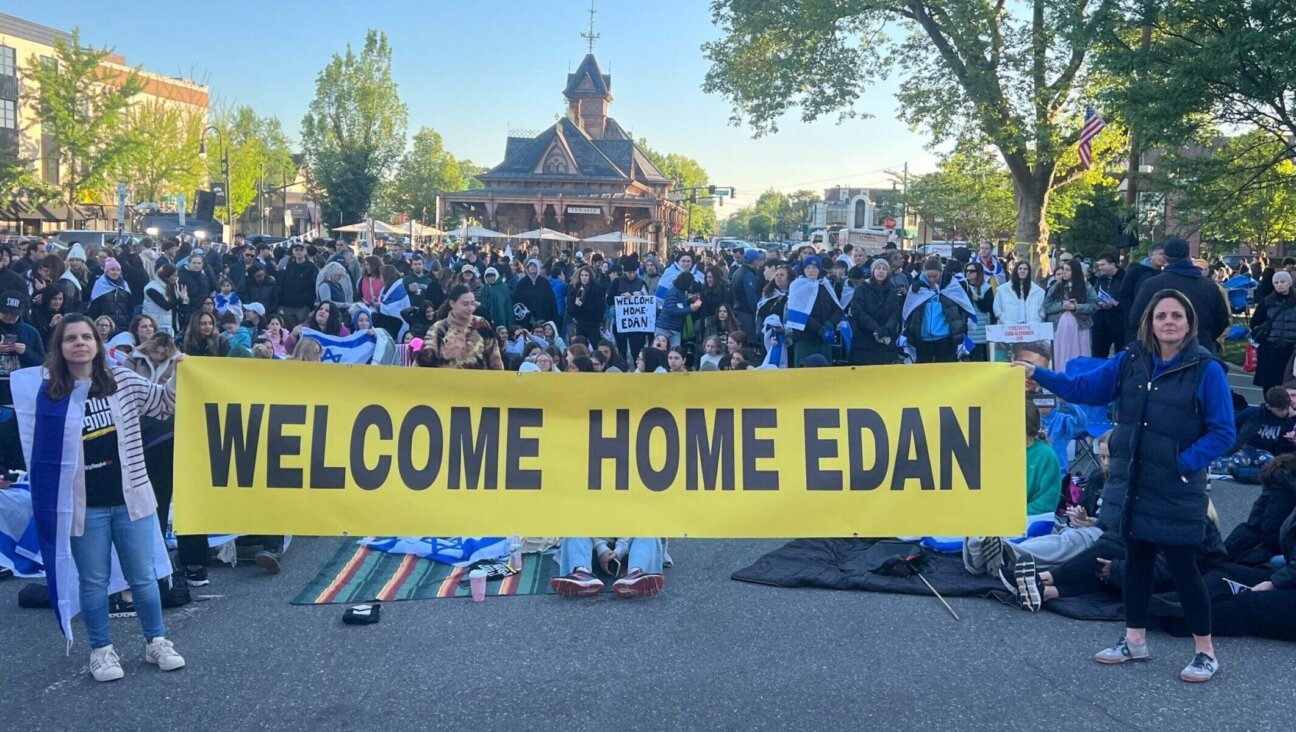From ‘Pupik: How My Grandmother Saved My Bellybutton’
We were back at the table. It was Yom Kippur and we were not fasting. I had unintentionally done my share for three weeks in the summer, watching 20 pounds fall away, unable to get anything in or keep anything down. And Grandma needed to eat. Her doctor had set weight gain as a priority over cholesterol and blood pressure. This freed Wini to eat whatever she pleased. No more synthetic Egg Beaters or Scramblers or whatever they were passing off for breakfast in the Old Folks section of the Star Market. No more fat free, cholesterol free, nondairy, low salt, high fiber, unsaturated, unnatural garbage.
For three weeks we had been up every night crying, watching TV and remembering Gramps. He had become the first link for us — the emotional common ground on which we could stand together without being fearful of letting our deeply intense emotions show.
I had come to her a basket case. My mother had driven me to the door and wept bitterly as she left, knowing I hadn’t chosen her as my savior, and that she was hiding a vital secret I could never have fathomed, even without the dread and loathing that consumed me.
When I arrived, Grandma seemed fearful, not knowing what her role was or how she could possibly help. When it came to caring for her grandchildren, she was a whirling dervish of ingenuity, artistry and unconditional love. But I could tell from the troubled look on her face that she had no idea how to handle the gaunt, unshaven, distraught grandson that had been left at her doorstep. Yet how could she refuse? As we sat and stared at one another, her slack-jawed responses suggested that she had consulted a martini glass in search of the answer.
But three weeks had changed us. Not the way three weeks of 50-minute therapy sessions change you, but the way 21 days times 24 hours changes you. Five hundred and four hours is 30,240 minutes. Together. When you’re trying to decide whether to live or die, you count them.
The Forward is free to read, but it isn’t free to produce

I hope you appreciated this article. Before you go, I’d like to ask you to please support the Forward.
Now more than ever, American Jews need independent news they can trust, with reporting driven by truth, not ideology. We serve you, not any ideological agenda.
At a time when other newsrooms are closing or cutting back, the Forward has removed its paywall and invested additional resources to report on the ground from Israel and around the U.S. on the impact of the war, rising antisemitism and polarized discourse.
This is a great time to support independent Jewish journalism you rely on. Make a gift today!
— Rachel Fishman Feddersen, Publisher and CEO
Support our mission to tell the Jewish story fully and fairly.
Most Popular
- 1

Fast Forward Ye debuts ‘Heil Hitler’ music video that includes a sample of a Hitler speech
- 2

Opinion It looks like Israel totally underestimated Trump
- 3

Fast Forward Student suspended for ‘F— the Jews’ video defends himself on antisemitic podcast
- 4

Culture Cardinals are Catholic, not Jewish — so why do they all wear yarmulkes?
In Case You Missed It
-

Fast Forward In Tenafly, NJ, a crowd awaits the release of local son Edan Alexander from Hamas captivity
-

Fast Forward Hamas and Trump say Edan Alexander to be freed from Gaza after US negotiates release
-

Culture Should Diaspora Jews be buried in Israel? A rabbi responds
-

Fast Forward In first Sunday address, Pope Leo XIV calls for ceasefire in Gaza, release of hostages
-
Shop the Forward Store
100% of profits support our journalism
Republish This Story
Please read before republishing
We’re happy to make this story available to republish for free, unless it originated with JTA, Haaretz or another publication (as indicated on the article) and as long as you follow our guidelines.
You must comply with the following:
- Credit the Forward
- Retain our pixel
- Preserve our canonical link in Google search
- Add a noindex tag in Google search
See our full guidelines for more information, and this guide for detail about canonical URLs.
To republish, copy the HTML by clicking on the yellow button to the right; it includes our tracking pixel, all paragraph styles and hyperlinks, the author byline and credit to the Forward. It does not include images; to avoid copyright violations, you must add them manually, following our guidelines. Please email us at [email protected], subject line “republish,” with any questions or to let us know what stories you’re picking up.














